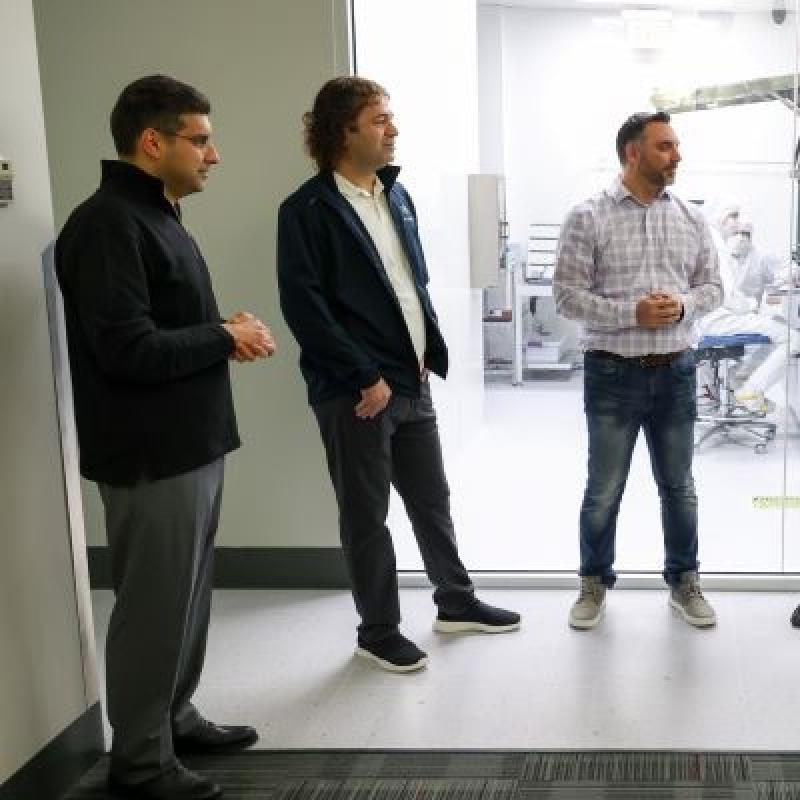
VueReal Inc., a Waterloo-based company behind a platform for energy- and resource-efficient displays and sensors, is expanding its manufacturing capacity with the help of over $10 million from the Canadian and Ontario governments.
VueReal was co-founded in 2016 by CEO Reza Chaji and chief nanotechnology officer Ehsan Fathi.
Chaji told SustainableBiz in an interview VueReal developed "MicroSolid Printing" to “bridge the two worlds of semiconductors”: the world of small, high-efficiency, high-performance devices and light emitting diodes (LEDs), with the world of larger electronics like displays, interfaces and medical devices.
VueReal’s platform prints miniscule LEDs, called microLEDs, that can be used to create screens for monitors and televisions, smartphones, mobile wearables, virtual reality gear and medical equipment.
“It’s changing the whole way you make hardware. It’s in a similar way you do it (printing) at home,” Chaji said. “You don’t go to a publisher to print thousands of pages; you do it at home or in the office. This technology is going to enable high-volume production through large companies, or it can also enable customization and low-volume production at the smaller companies or development sites.”
VueReal received $10.5 million in grants from Sustainable Development Technology Canada and the Ontario government to support its $40-million project. Most of the funds will be used to scale up VueReal’s facility, add automation and hire employees, Chaji said.
In a release, VueReal says it will create 75 full-time, permanent jobs in the Waterloo Region and employ 105 people by the end of the project.
How VueReal ‘prints’ LEDs
The company’s process allows users to ‘print’ semiconductors from a cartridge onto a surface for different applications. An LED is a kind of semiconductor.
VueReal is currently focused mainly on LEDs, particularly microLEDs. Tiny screens, used in products such as smart watches, utilize microLEDs to provide high resolution for the clearest possible pictures.
The microLED technology has caught the interest of industries such as the automotive sector for its brightness, contrast, reliability and low power consumption, Chaji said.
“It’s really appealing for those types of markets. That’s what we’ve been focusing on as our first go-to-market strategy and that’s where our expansion is going to help us, to support those markets faster. But it’s not limited to that, that’s our first focus.”
Energy and resource efficiency
As semiconductor demand has grown, the industry has been implicated as a significant contributor to greenhouse gas emissions, water consumption and mineral use. To address this, Chaji said VueReal removes the LCD screen and uses the light from an LED for each pixel, reducing energy consumption of microLEDs by two to three times.
The company also says it reduces the resources required to manufacture displays.
Most display manufacturing today is done on a large scale, Chaji said, which is water-, energy- and resource-intensive. VueReal shrinks this process from metres to inches using its printing technology, which he said is more efficient.
For example, rather than having to clean a metres-long surface with treated water, VueReal prints many smaller inches-long screens, which will require less water.
Chaji could not provide an exact figure for resource efficiency as it depends on the size of the displays, but said it is “significant”.










